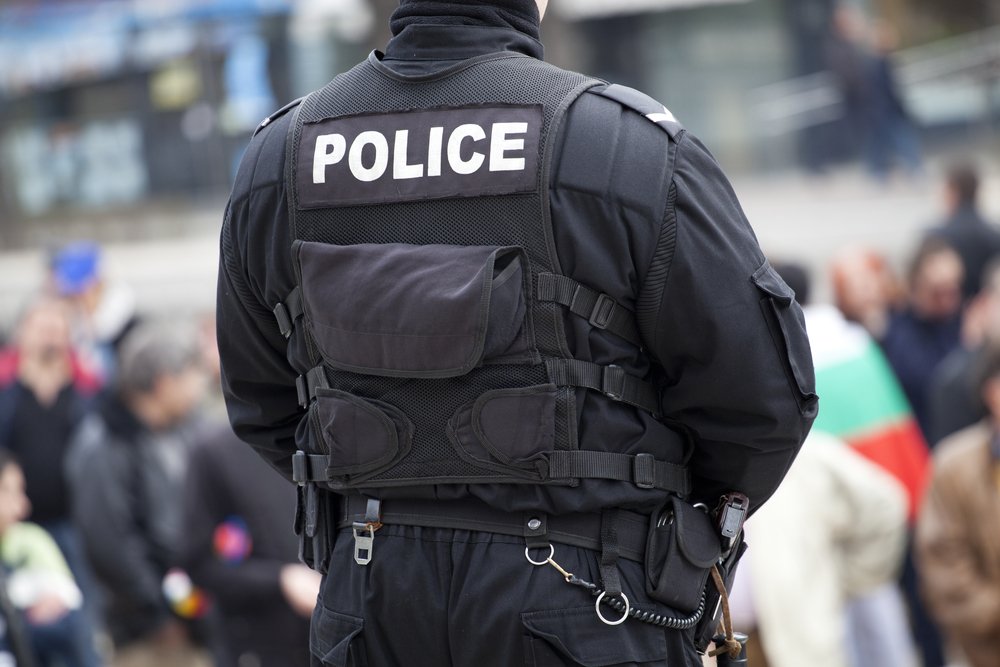How Our Guide Could Help You
This guide also contains useful information on the personal injury claims time limit and other information including:
- A full description of the legal definition of police misconduct with regard to making a compensation claim.
- A full description of the legal definition of police negligence UK with regard to making a police negligence compensation claim.
- A list of the most common types of police negligence that happen in the UK each year.
- Steps you should take if youve suffered an injury due to police negligence or misconduct to give you the best chance of winning a compensation claim.
- Information on your legal position if you need to make a compensation claim for an injury caused by an assault by a police officer.
- Information on claiming for emotional distress caused by police negligence UK or misconduct.
- A discussion of the duty to protect that all police officers are expected to adhere too. We then look at how you can claim if the police fail in this duty.
- A description of police misconduct hearings, what they are and what their function is.
- The steps you need to take to begin a compensation claim for an injury caused by police misconduct or negligence.
- An introduction to the Accident Claims UK No Win No Fee claims service.
- Our explanation of why we believe this is the best vehicle for making a claim from the police.
What Happens At A Police Misconduct Hearing
Hearings for police negligence are held in public places for openness and transparency. Anybody can attend a misconduct hearing as long as they are over 18 years of age. They are usually in a room where the facts are presented to a panel, very much like in court, and often witnesses are present to give their account of what occurred.
The officer is given the opportunity to give their version of events and a chance to explain their conduct and the circumstances surrounding the allegation against them.
If an officer is found guilty of gross misconduct, the following outcomes can occur depending on the circumstances :
- Dismissed with or without notice.
- Management advice.
- No further action.
To prevent officers that have been dismissed being able to gain further employment as a Police officer with any other force in the UK, they may also be placed on the Disapproved Register. All of this is worth considering as youre filing any police negligence claims.
Civil Rights And Police Misconduct
You must read the following notice before sending an e-mail message to Robins Kaplan LLP.
Any information that you send us in an e-mail message should not be confidential or otherwise privileged information. Sending us an e-mail message will not make you a client of Robins Kaplan LLP. We do not accept representation until we have had an opportunity to evaluate your matter, including but not limited to an ethical evaluation of whether we are in a conflict position to represent you. Accordingly, the information you provide to us in an e-mail should not be information for which you would have an expectation of confidentiality.
If you are interested in having us represent you, you should call us so we can determine whether the matter is one for which we are willing or able to accept professional responsibility. We will not make this determination by e-mail communication. The telephone numbers and addresses for our offices are listed on this page. We reserve the right to decline any representation. We may be required to decline representation if it would create a conflict of interest with our other clients.
Our Civil Rights/Police Misconduct practice areas include:
- Civil Rights Violations
Don’t Miss: How To Get A Police Accident Report Online
Clearing The First Hurdle: Qualified Immunity
There are two types of immunity: absolute and qualified immunity. Only a limited group of individuals enjoy the protections of absolute immunity, such as the president, legislators , or judges carrying out official judicial duties.
Police and law enforcement officers, along with other officials, enjoy qualified immunity, which means that they cant be sued when performing official duties unless they violate clearly established constitutional rights or act in a grossly unreasonable fashion.
Recommended Reading: How Much Do You Get Paid As A Police Officer
Negligent Infliction Of Emotional Distress

Citizens can also sue police officers when the latter cause emotional distress negligently, rather than intentionally or recklessly. The extent of emotional harm required for a successful lawsuit depends on the jurisdiction.
But in order for there to be potential liability for negligently caused emotional distress, the officer must owe a “duty of care” to the citizen. In other words, the court will consider whether the officer had some kind of special relationship with the plaintiff that’s distinct from the general police responsibility to the public at large.
For example, in a Louisiana case, a rape victim sued a sheriff for the emotional distress she suffered when the evidence in her case was mistakenly destroyed before a suspect had been arrested. The court held that the duty to preserve evidence goes to the general public, and that law enforcement doesn’t owe any special duty to protect an individual from the misplacement or mistaken destruction of evidence. .)
Also Check: How Do I Find A Police Report
Most Common Types Of Misconduct Claims
In order to answer the question, “Can I sue the police department for violating my rights?”you need to understand what types of actions the police are allowed to do and are not allowed to do. This will give you the opportunity to come forward with any evidence while it is fresh in your mind and present it to your lawyer when you intend to sue for police misconduct. Certain types of police misconduct cases are more common than others and due to the existing case law and previous interpretations of these kinds of suits, you have a greater chance of being successful in these claims by understanding them.
Harassment is one of the most common types of misconduct claims because this includes a pattern of behavior on the part of the officers or the entire department, such as surveilling or spying on you illegally, making racist, homophobic, or sexist comments, or racial profiling. It is very important to understand the specific circumstances of what happened and what was said or done to you because this information will come up as evidence. A second common type of police violation is a 4th amendment violation.
Breaches Against Human Rights
The Human Rights Act of 1998 sets out the primary rights and freedoms that everyone in the UK is entitled to. The Police, councils, schools and local authorities all have a moral and legal obligation to ensure that these rights are not violated but instead are protected.
Human rights have some impact on every area of our lives. Some of the main points of human rights are :
- The right to life every human being, no matter their background or current situation, has a right to life.
- The right to have privacy.
- Access to healthcare, treatments and medication.
- Freedom against harassment or discrimination.
If you feel that you have suffered an infringement of your human rights, then call us and we will give you a free consultation session. We work on a No Win No Fee basis and our team is ranked in the leading claims directories. Speak to us about how this could influence your police negligence claims.
Read Also: What To Major In To Become A Police Officer
What Kind Of Case Can You Bring Against A Police Officer
One type of case you might want to pursue is filing a civil lawsuit. Instead of focusing on whether the officer was in fear for his or her safety, the jury involved in the civil lawsuit focuses on whether the officers actions satisfied specific civil lawsuit elements. Many times, even if a criminal jury acquits an officer, a civil jury finds the victim or the family of the victim deserves compensation for the officers actions.
There are also different types of categories to consider when filing a lawsuit against a police officer. Common reasons for filing a suit include emotional distress, misconduct, and rights violations.
Donotpay Offers An Easy Way To Sue The Police
All in all, DoNotPay is on a mission to achieve justice for all and has made the process to sue police extremely accessible. Using the Sue Now service, DoNotPay will handle the entire process for you. All you need to do is:
In just 4 steps, youll get a demand letter and the necessary court filing forms to win your case. Now, how easy was that?
You May Like: How Many Police Officers In Chicago
How Much Are Police Misconduct Settlements
Settlements in a police abuse lawsuit include payment for the physical harm, psychological harm, and economic losses suffered by the victim and family.
Economic losses include medical expenses, lost income, and other financial losses resulting from the incident. There is generally no limit to the amount of a settlement. Every case is different depending on the facts, circumstances, and injuries.
In cases involving wrongful death, a settlement can be sought for the victims pain and suffering from the time of the incident until death. They also claim compensation for the loss of companionship suffered by the family members.
Since 2015, the City of Detroit has paid out more than $25 million in police misconduct claims. This includes a $925,000 settlement for a man shot in the back and two claims totaling $4.5 million for men sent to prison for crimes they did not commit.
Most recently, the City of Detroit reached an $8.25 million settlement with the family of a young girl shot during a police raid. The police department denied any wrongdoing for the death. Facts and information obtained in a lawsuit showed it was an unjustified shooting.
What Are Signs Of Emotional Distress
In order to sue the police for emotional distress, you must first be able to prove that emotional distress has occurred.
Typically, this is most easily done by demonstrating that a reasonable person who was put in the same situation as the plaintiff would also be unable to endure the emotional strain, and that this reaction would not be considered unusual given the circumstances. If emotional trauma is short-lived or generally manageable, it is unlikely to be considered emotional distress.
Also Check: Can You Become A Police Officer After Military
What Are The Police Shooting Statistics
It is clear that there is a problem with police shootings in Michigan, as well as around the country.
While there seems to be a new story making headlines every week, the statistics on police shootings are just as alarming.
Sadly, the majority of police departments around the country today have not implemented use-of-force policies, and officers are rarely held accountable.
How Much Compensation Will I Get After Being Involved In Police Misconduct

The amount of compensation you can claim from police negligence claims will depend on the details of your own personal case. Unfortunately, no one can guarantee you anyone particular amount but we can give you an estimate based on previous Police misconduct outcomes and the compensation payouts already received by many.
What we can provide you with is the compensation against Police amounts. In the table below, you can find the average payouts for various injuries and problems that are often claimed for when suing the Police for negligence or misconduct.
Recommended Reading: How To Know If Police Is Looking For You
Can Police Officers Be Sued Personally
Request a Quote! An insurance quote does not impact your credit score.
Police officers are highly respected by most people because of the risks and liabilities they often face while protecting their communities and enforcing the law. However, policemen and women are ultimately human, which means they sometimes make mistakes everyone knows this. In these cases, officers are typically investigated for misconduct. What most people dont know is whether or not police officers can be sued personally for wrongful actions. Here is a close look at this subject.
Can I Sue The Police For Emotional Distress
If you have suffered emotionally and psychologically as a result of being involved in an act of Police misconduct or negligence, then you can make police negligence claims. Emotional scars very often take much longer than physical scars to heal and can have a huge impact on your well-being and ability to cope day-to-day.
If you feel this is you, then contact us straight away and our trained professionals can help you with care and empathy to get the police negligence compensation payout that you deserve.
Recommended Reading: How To File A Civil Rights Complaint Against Police
What Is The Role Of The Police
The role of the police and police officers duty of care is to uphold the law in the UK. They should do so in a way that is fair but firm. They should prevent crime, keep the peace and reassure the community and they should ensure that anyone they deal with is dealt with without restricting their rights under the Human Rights Act. Police officers have core operational duties. These include the following,
- Preserving public order.
- Protecting life and protecting property.
- Preventing offences from happening.
- Bring to justice those breaking the law.
In addition to these duties, the police have other roles set out in common law and legislation.
Unjustified Use Of Stun Guns
Stun guns are dangerous weapons and should only be used in urgent circumstances. A police officer should only use a stun gun to stop a confrontation. They are designed to incapacitate an attacker at a distance. They are preferred over the use of a firearm, but still pose a risk of serious injury or death.
A recent Reuters investigation identified 1,081 deaths involving the use of stun guns. In many of those instances, the use of a stun gun was not warranted under the circumstance. In several hundred instances, the family of the victim sued the government for the stun gun death and received a settlement payout.
Also Check: How Can I Find Police Reports Online Free
Shootings Of Innocent And Unarmed People
Police shootings of innocent and unarmed people are a serious problem. An officer should not shoot a person who is not in the commission of a crime. Nor should the police fire a gun at someone unless the person poses an immediate risk of injury or death to others.
Shooting a firearm at a criminal perpetrator or suspect should always be the last option. Officers are trained to use less deadly measures first and only shoot if the situation is urgent. Many police shooting victims are unarmed and pose no danger to anyone. Others are mentally ill and proper communication will usually end any potential threat without a shooting.
What Is Police Abuse
Police abuse involves any type of misconduct or misrepresentation of power. Also called abuse of power, this encompasses the many ways that officers can take advantage of their powerful position in our society. Some examples of police abuse involve officers who treat citizens with unwarranted brutality, engage in corrupt acts that put innocent citizens lives at stake, or shoot people in response to little or no provocation.
Also Check: How Much Does Police Academy Cost
How Do I Sue The Nypd
Overreachby a law enforcement official does not need to result in death or seriousinjury for police conduct to be actionable. Particularly in New York, thepolice operate under strict orders and limitations on what they can and cannot doto detain and treat suspects.
Whenan officer exceeds those limits, and an individual suffers a physical,emotional, or psychological injury, they may have good cause to sue the NYPD.
The NYC civil rights lawyers at Friedman, Levy, Goldfarb & Green, P.C. help victims of police misconduct to recover the damages they deserve to compensate for injuries suffered at the hands of overzealous police officers. Specific rules govern the processes and procedures to sue the NYPD. Victims of police violence should verify that their lawyers understand those rules and have the experience and expertise to overcome the citys and the police departments defenses against them.
What Is Excessive Force

The use of excessive force is a violation of the Fourth Amendment’s prohibition on unreasonable searches and seizures and, in some cases, the Eighth Amendment’s prohibition on cruel and unusual punishment.
It need not be deadly force, nor must it result in serious injuries or death. Or even personal injury at all. Simply more force than is reasonably necessary under the circumstances.
In determining whether the amount of force violated the U.S. Constitution, courts look at the particular facts of the situation. For example:
- The severity of the crime at issue
- Whether you posed an immediate threat of harm to the officer or others
- The possibility that you were armed or that other persons subject to the police action were dangerous
- Whether you were actively resisting arrest
- Whether you were attempting to flee
- The duration of the officer’s action
- The number of people the officer had to deal with
- Whether any injuries sustained were unnecessary
The focus is not on what the officer actually believed, but on what a reasonable law enforcement officer at the scene would have believed. For more about what constitutes excessive force, click here.
You May Like: Can I Make A Police Report Online